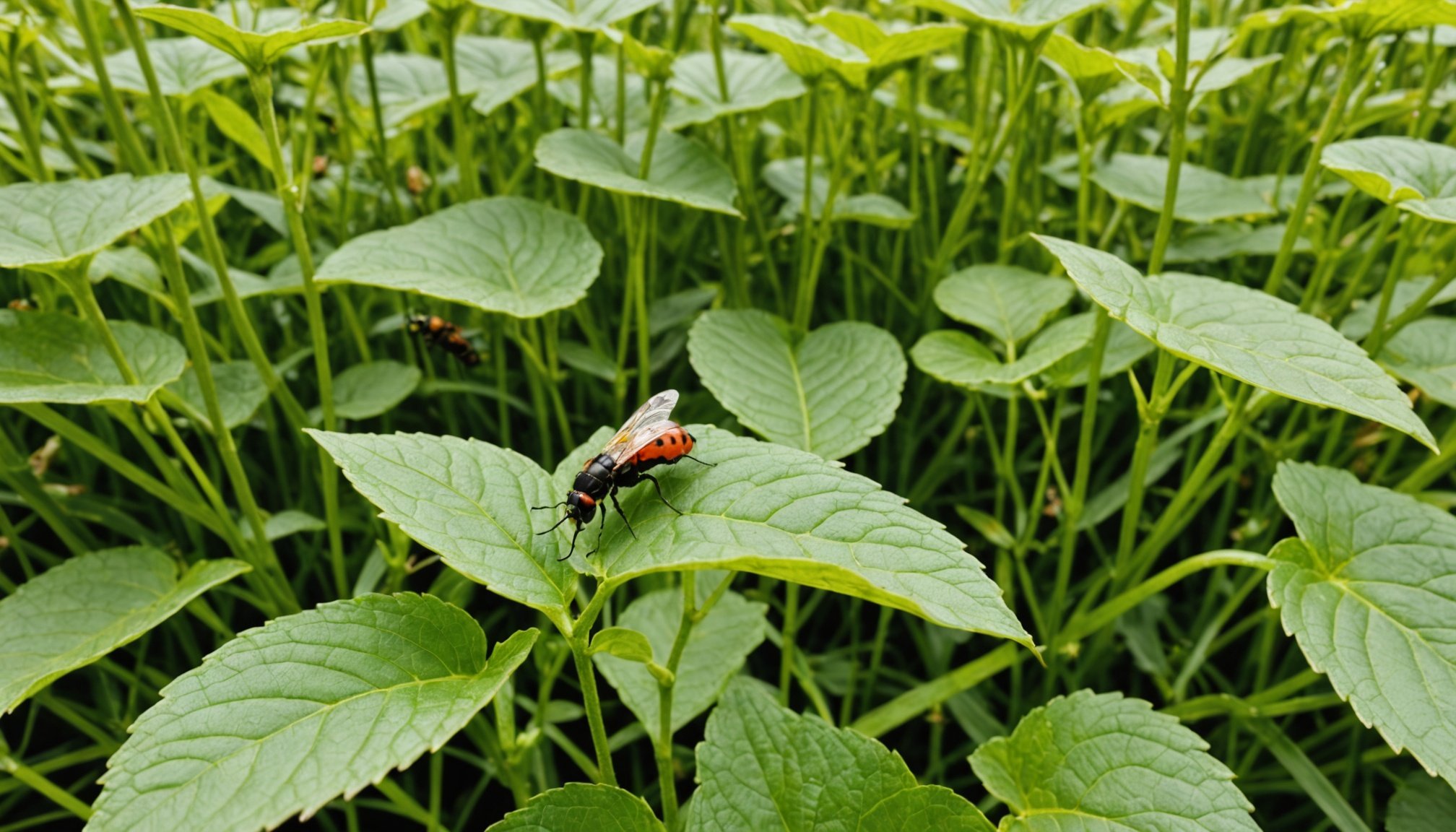Have you ever observed your garden and wondered why certain plants seem to be thriving while others struggle? One of the factors often overlooked is the role of beneficial insects. These little creatures, from bees to wasps, moths to birds, play a significant role in the health of your garden. This article will explore the native UK plants that attract beneficial insects, and how they contribute to organic pest control.
Beneficial Insects and Their Roles in the Garden
Before we delve into the plants that attract these insects, it’s crucial to understand the roles they play in maintaining your garden’s health.
Cela peut vous intéresser : How to Choose a Safe and Durable Play Equipment for Your UK Garden?
Beneficial insects aid in pollination, decomposition of organic matter, and pest control. For instance, bees and some species of wasps are essential for pollination, while others such as ladybirds and lacewings can help control pests.
From breaking down plant material and recycling nutrients in the soil to feeding on pests that harm your plants, these insects contribute significantly. They often serve as a biological control mechanism, keeping potentially harmful pests in check, and reducing the need for chemical pesticides.
Cela peut vous intéresser : What Techniques Can Maximize Crop Rotation Benefits in a UK Garden?
Attracting Beneficial Insects with Native UK Plants
A garden teeming with diverse plant species is typically more resistant to pests and disease. Native UK plants can serve as a hotspot for beneficial insects, given that they are well adapted to the local climate and soil conditions.
Here are some of the native UK plants that are known to attract beneficial insects:
-
Marjoram (Origanum vulgare): This herb not only adds flavor to your meals, it also attracts a wide variety of beneficial insects, including bees and butterflies. Marjoram flowers are rich in nectar, making them a favorite food source for these pollinators.
-
Common Hawthorn (Crataegus monogyna): Hawthorn is a favorite among many insects, including bees and moths. Its dense foliage provides shelter, while its flowers offer nectar.
-
Red Clover (Trifolium pratense): Offering both pollen and nectar, red clover is a magnet for bees and butterflies. Moreover, its roots host nitrogen-fixing bacteria, which enrich the soil.
-
Ivy (Hedera helix): A great source of late-season nectar, ivy attracts bees, butterflies, and other insects in the autumn when food sources are scarce.
-
Foxglove (Digitalis purpurea): This plant attracts bees with its bell-shaped flowers, which are a rich source of nectar.
Mimicking Nature for an Organically Balanced Garden
While cultivating these plants, remember to mimic nature as closely as possible. An organically balanced garden is one that encourages a diverse range of species, creating a mini-ecosystem where plants, insects, birds, and other creatures interact and support one another.
Try incorporating different plant heights and structures in your garden. For example, a mix of tall trees, shrubs, and ground cover can offer various habitats. This will attract a broader range of insects and birds, each playing its role in the health of your garden.
Furthermore, consider the needs of your beneficial insects. Some insects, such as certain species of wasps and bees, need bare patches of soil to nest. Others, like ladybirds and lacewings, need places to hibernate over winter. Providing these habitats will encourage these beneficial insects to take up residence in your garden.
Deterrents to Beneficial Insects
While it’s important to attract beneficial insects, it’s equally important to avoid practices that could deter them or harm their populations. Overuse of chemical fertilisers and pesticides can disrupt the delicate balance of your garden ecosystem. These products not only kill pests but also beneficial insects.
Instead, try using organic alternatives. Compost and organic fertilizers can enrich your soil without the harmful side effects. Similarly, if you encounter a pest problem, consider using organic pest control methods before resorting to chemical pesticides.
Lawns and Beneficial Insects
If you have a well-manicured lawn, you might want to rethink its role in your garden. While traditional lawns may seem appealing, they offer little to beneficial insects.
Instead, consider converting a part of your lawn into a wildflower meadow or a herb patch. Not only will this increase the biodiversity of your garden, attracting more beneficial insects, but it will also create a visually appealing landscape.
In conclusion, by understanding the role of beneficial insects, you can tailor your garden to support their survival. Whether you are a seasoned gardener or a beginner, integrating native UK plants into your garden can contribute to a healthy, vibrant, and ecologically balanced outdoor space.
Organic Pest Control: The Role of Beneficial Insects
Vital to the ecosystem of our gardens, beneficial insects play a significant role in organic pest control. From pollination to decomposition, these tiny heroes contribute to the overall health of your garden by maintaining a balance.
Take parasitic wasps for instance, these mini warriors are a gardener’s best friend. Female wasps lay eggs on or in various garden pests, including aphids and caterpillars. Once the eggs hatch, the wasp larvae feed on the host, thereby controlling the pest population.
Ground beetles, on the other hand, are nocturnal insects that feed on a wide range of garden pests including slugs and snails. They require a well-drained soil habitat and tend to lay eggs in decomposing plant material.
Encouraging these beneficial insects to your garden requires a diverse range of flowering plants, also known as insectary plants, offering a continuous supply of nectar and pollen. Insectary plants not only provide food for mature insects but also create a habitat for them to lay eggs, encouraging a healthy insect population in your garden.
Best Practices for Growing Beneficial Insect-friendly Plants
Growing plants that attract beneficial insects requires some understanding of the needs of these insects. The foremost requirement is a sunny spot. Most beneficial insects prefer to feed in full sun and therefore, the plants attracting them should ideally be planted in well-lit areas.
The soil type is also an important consideration. Most native UK plants, which are the preferred choice for attracting beneficial insects, are accustomed to well-drained soil. Overly saturated or very dry soil may not be beneficial for these plants.
A diverse range of flowering plants is another consideration. This ensures that there is a continuous supply of nectar and pollen for different species of insects in different seasons.
Finally, avoid the use of chemical pesticides. These can have a detrimental effect on beneficial insect populations. Instead, consider using organic methods of pest control if necessary.
Conclusion
In conclusion, attracting beneficial insects to your garden is an effective and natural way of controlling garden pests. It involves the understanding and implementation of some basic gardening practices like providing full sun exposure, maintaining well-drained soil, and planting a diverse range of insectary plants.
The process is more than just simply planting a few flowers. It involves creating a mini-ecosystem where beneficial insects can thrive. But with careful planning and a little effort, you can promote a healthy, vibrant, and naturally balanced garden that contributes positively to the wider ecosystem. So, next time you spot a ground beetle or a parasitic wasp in your garden, welcome them with open arms (from a safe distance, of course) and celebrate the natural pest control they offer.











